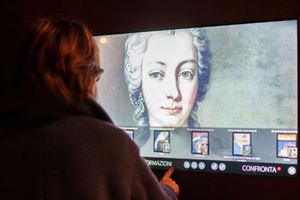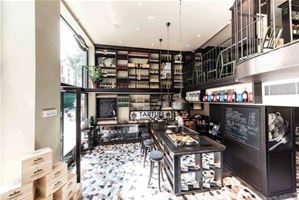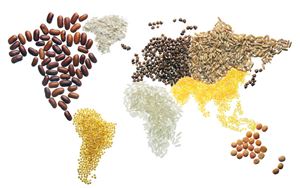Seven hundred years ago, the desire to unite the people residing on this peninsula was born from a revolutionary linguistic notion advanced by Florence’s sommo poeta, Dante Alighieri. His vision was to break the language boundaries that separated those who wrote high literature and those who read it.
Literature was written in Latin, spoken only by clergymen, educated elites and the political class; it was the language of the ‘owners’ who controlled every aspect of daily life in a decidedly feudal society. Despite Italy’s hundreds of autonomous domains and regional and local differences, Dante already envisioned a common Italy and wanted his words to be everyone’s words, accessible to every man. Dante gave rise to ‘Italian,’ a language crafted from the Florentine and Tuscan dialect, and a smattering of other regional dialects and Latin. It was a language that anyone who could read could understand. He defended the beauty and intellectual value of uniting people with their own language, starting the process of Italy’s unification, which only culminated centuries later in the heroic feats and republican ideals of Giuseppe Garibaldi and his compatriots in the Risorgimento era. Dante was the father of language, and language was the mother of Italy.
Yet why did it take five centuries to unite Italy under one flag? Sparked by the wars of independence in France, Italy and its people decided that they, too, wanted independence. In those years, revolutions were sweeping the Western world. America wanted freedom from the British Empire and a foreign monarchy that did not represent its colonies. France wanted freedom from a frivolous monarchy that did not care for its people. Spain revolted against a leader that did not honor his constitutional commitments. Italy wanted freedom from foreign rule that did not understand them and exploited both them and the resources of the land.
In a strategic location in the Mediterranean, for centuries Italy was exploited by those quicker and hungrier for profit. Everybody, it seems, passed through this country at one point or another: the Roman Empire was eventually overcome by barbarian invasions; the Spanish, Germans, Austrians and French played tug-of-war with the boot throughout its later history; Middle Eastern Empires came far before, transforming the genetic and cultural fabric of the South-and this is only the half of it.
Until the Risorgimento in the 1800s, Italian history was essentially a chain of submissions to the changing tides of the international order. What changed in the Risorgimento? It was a political Renaissance fueled by the dream of independence from foreign rule, not necessarily to unite or create a homogenous identity and national consciousness. Italy was divided along autonomous domains, whose local and regional identities and traditions, to this day, still prevail over any other collective national identity.
In light of this, can we say that calcio and caffé are truly Italy’s best expressions of patriotism? In TF 137, we called for comments, asking readers what they think unites Italy.
TF columinist Suzi Jenkins seems to think that football is one of the only things that unites Italians. Conversely, Lee Cooper asserts ‘I think football actually divides people in Italy. Certainly when you watch the national team play, many Florentines don’t; they hate the national team! Partly because it’s usually made up of Juventus and AC Milan players…I did a survey of some of my Florentine students as to whether a united Italy is a good thing and sadly had mixed results.’
Most Italians, and the expatriates who call this country their home, think Italy’s culinary tradition is a good enough reason to rally around the flag. While others, like Justin Waldman, feel there is not much feeling of unity in the peninsula: ‘Is there really unity in Italy? Really? Doesn’t the North think the South is a third-world leech? Certainly, that’s what my good friend Virginia says; she was born in Cremona and lives and works in Milan. She was even scathing about Florence, which irritated me, though it did open my eyes. And the Lega Nord does little, from what I can gauge, to fuel a sense of unity across the peninsula. Surely this is political, not about football or food.’
Here at TF, aside from a common history, language, national anthem and flag, we believe that patriotism in Italy is strengthened by each Italian’s valuing of three things: taste, beauty and freedom. In the lead-up to National Unity Day on March 17, surveys aimed at gauging Italians’ sense of unity abound. A recent study, conducted by VdG Magazine involving some 900 Italians ages 18 to 30, reveals that 70 percent of those questioned believe that eno-gastronomical excellences best represent Italy and 69 percent believe that Italy’s food and wine are signs of their italianità, their ‘italianness.’ Regardless, it would be incorrect to ignore the deep ties Italians maintain to their land and culinary traditions. Ristorante Accademis in Florence agrees, as most do, that food and wine are definite monuments to Italian identity: ‘Sure, it’s all different; sure, we argue about the exact recipes and ingredients; sure, we all think that our grandmothers make the very best gnocchi. But we are all absolutely united by our passion for making, eating and talking about great food.’
Others say that beauty and the love of beauty is what unites Italians. ‘One of the few things that Italians have in common is their near constant search for perfection in beauty. Being surrounded by beauty all the time, think of Italy’s art, architecture, fashion, the Made in Italy label, its landscape, colours and climate; this has given Italians an insatiable need to create and be surrounded by beauty both for themselves and for others,’ says Michele Murante, an IT consultant from Milan. Indeed, no other country boasts so many UNESCO World Heritage sites as does Italy. And no other country in the world has such a rich artistic and cultural heritage, from north to south, as Italy. Think of Venice’s Grand Canal, Turin’s Mole, Milan’s Duomo and Castello Sforzesco, Rome’s Pantheon and the Colossuem, the archeological site of Pompeii, Matera’s Sassi, Agrigento’s Valley of the Temples, Florence’s Duomo and Michelangelo’s David. ‘While a business mogul in Milan and a fisherman from Sicily may have little to chat about, they’ll likely both express deep pride in knowing that the David is theirs,’ said Samuele Alberti, a graphic designer in Florence.
Moreover, it would be difficult to find another country or culture that uses the word ‘beautiful’ to describe an argument, an idea, or who spends the first half hour of his meal describing the contours of his wine glass or the balance among the colors of his plate. It’s a notion inextricable from Italy’s origins: the obsession with architectural balance in the Roman Empire, the pervasive humanistic concept that beauty without reflected balance within and, the beauty of the words that ultimately brought together a country that had no means of understanding its immediate regional neighbors.
And then there is freedom. Centuries of foreign domination led Italians, and even a few non-Italians (see ‘Faces of the Mille,’ pages 18 and 19), to fight for independence. It was that very yearning for liberty that united them. Yet that independent mentality perhaps furthers the disjointed image-or reality-that makes any discussion on unity controversial and multifaceted, for each individual Italian seems to cling to an opinion about the state of the union that is at once unique and nonnegotiable.
Indeed, any discussion on Italian unity and any debate over what truly unites this country must reflect and accept the Italians’ sense of ‘unity in their disunion.’ Rife with contradictions, north to south, left to right, past and present, Italy is a country that has always come out on top, no matter what the odds. What unites it? TF’s resident wordsmith, Linda Falcone, once again, hits the nail on the head: ‘Italy is unified by one main desire: the hope of remaining happily regionalist.’ And, as it turns out, in Italy, being disunited is okay, too. Viva l’Italia!







